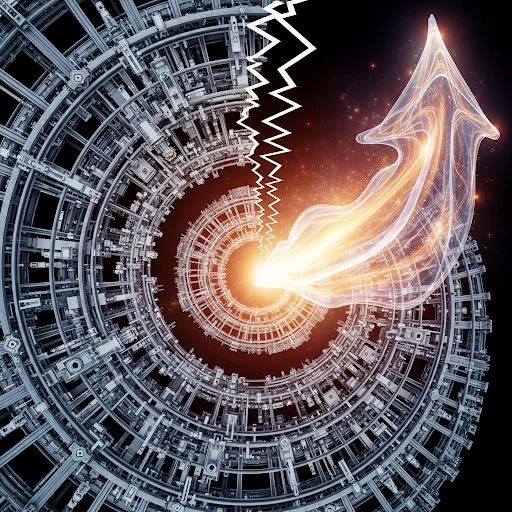
This article explores several pairs of opposing yet unifying concepts:
A formal system consists of axioms, inference rules, and a symbolic language, with reasoning that is mechanical and deterministic.
The Turing Machine is the ultimate abstraction of a formal system, a mathematical model of computability.
The Church–Turing thesis asserts that any intuitively computable function can be computed by a Turing Machine.
Conclusion: Deductive reasoning in formal systems and mechanical computation in Turing Machines are essentially isomorphic.
Gödel’s incompleteness theorem shows that any consistent and sufficiently powerful system must necessarily be incomplete.
Conclusion: Consistency and completeness cannot be simultaneously achieved.
When formal systems are constrained by incompleteness, induction and intuition become sources of new axioms.
Turing proposed the Oracle Machine, which can “instantly solve” problems unsolvable by a Turing Machine (e.g., the halting problem).
He constructed a logic system based on ordinals:
Logical Pathway: Induction/Intuition (Oracle) → provides new axioms → Deduction (Formal System) expands → generates new incompleteness → Oracle invoked again.
Formal systems and Turing Machines ensure computability and consistency, but are inevitably incomplete. Induction and oracles provide the power to transcend formal systems, allowing knowledge to continually approach completeness. The dynamic tension between the two forms the fundamental driving force of logic, computation, and the evolution of knowledge.